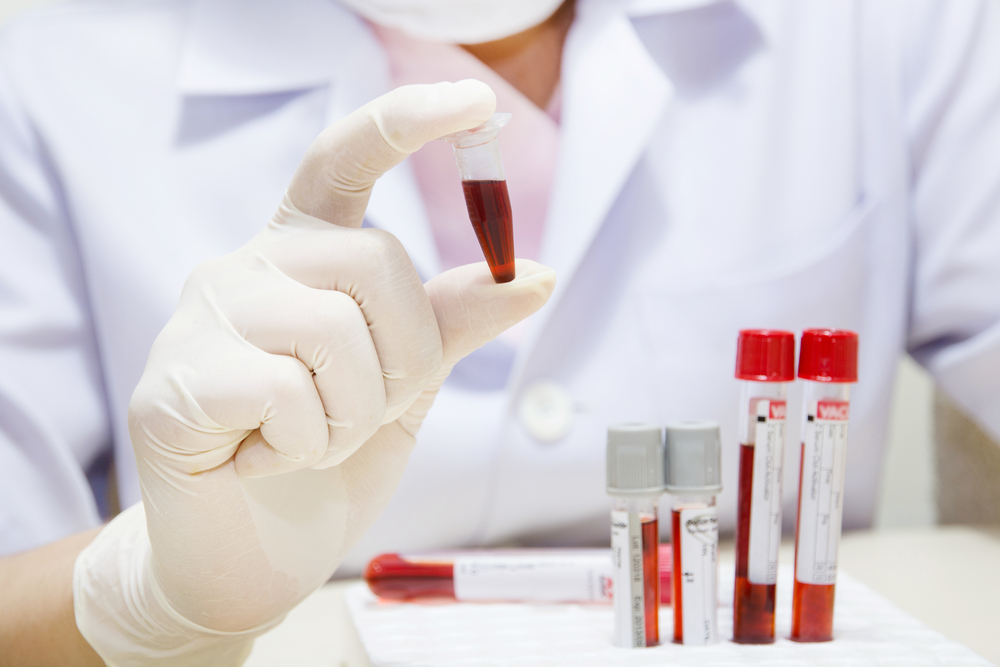Exagen’s Patented Biomarker PC4d May Help Predict Risk of Blood Clots in SLE, Study Shows
Written by |

Platelet-bound C4d (PC4d), one of Exagen‘s patented biomarkers, may be used along with other available biomarkers to estimate the risk of thrombosis — the formation of blood clots — among people with systemic lupus erythematosus (SLE), a study shows.
The study, “Platelet-bound C4d, low C3 and lupus anticoagulant associate with thrombosis in SLE,” was published in Lupus Science & Medicine.
SLE, the most prevalent form of lupus, is a chronic autoimmune disease characterized by tissue inflammation, skin rash, pain, fatigue, depression, and impaired cognition. Thrombosis, a medical condition in which a blood clot blocks blood circulation, is considered one of the most serious side effects of SLE.
“The excessive risk of thrombosis in SLE is dependent on the presence of abnormalities that are specific for the disease, including low C3, antiphospholipid (aPL) antibodies (in particular lupus anticoagulant [LAC]) and nephrotic syndrome [kidney disease]. Other factors related to SLE treatment such as prednisone may further elevate the risk of thrombosis,” the researchers said.
Complement 3, or C3, is a protein that is part of the complement system — a set of more than 50 blood proteins that form part of the body’s immune defenses — that is found in very low levels in SLE patients.
LACs are antibodies produced by the body’s immune system that target and destroy phospholipids, the main components of cell membranes, increasing the formation of blood clots and the risk of thrombosis.
“We know that SLE patients with antiphospholipid antibodies — particularly the lupus anticoagulant — are at increased risk of thrombosis, but our ability to predict who is at highest risk is woefully inadequate,” Michelle Petri, professor of medicine at the Johns Hopkins University School of Medicine and director of the Hopkins Lupus Cohort, said in a press release.
This may now change with the use of new biomarkers. The PC4d biomarker is one of Exagen’s patented blood tests, known as cell-bound complement activation products, or CB-CAPs. By measuring the levels of PC4d in the blood, researchers are able to tell how much lupus and the complement system are active, and to predict the risk of thrombosis in SLE patients.
In their study, researchers analyzed the relationship between PC4d and thrombosis, and created a composite score incorporating information from PC4d, C3, and LAC levels, to predict the risk of thrombosis in a group of SLE patients.
“The Hopkins Thrombosis Risk Score, developed in collaboration with Exagen, has included the multifactorial nature of the risk, particularly the involvement of two other pathways: low complement; and complement split products bound to platelets (an assay initially developed by Drs Joe Ahearn and Sue Manzi). We recognize that this risk score requires prospective and external validation,” Petri said.
The cross-sectional study involved a total 149 SLE patients, including 16 who had experienced an episode of thrombosis within the last five years, and 133 who had not.
As expected, regression analysis showed that abnormal PC4d and LAC levels, together with low C3 levels, were all individually associated with thrombosis.
In addition, the composite risk scores reflecting abnormal PC4d and LAC levels, and low C3 levels combined were significantly higher in the presence of thrombosis (1.93), than in its absence (0.81).
Although the composite risk score performed better than risk factors alone at predicting the risk of thrombosis in SLE, researchers noted that both may be valuable resources to physicians in identifying patients who may benefit from clinical interventions to minimize the risk of thrombosis, such as hydroxychloroquine therapy.
Exagen is the only company providing a diagnostic test for lupus (AVISE lupus) that incorporates 10 different CB-CAPs biomarkers, including the new PC4d biomarker. PC4d also is one of the most important components of the company’s AVISE SLE Monitor test, meant to help clinicians assessing the health status of their SLE patients.
“We are the only company developing novel instruments like PC4d for the rheumatology community,” said Ron Rocca, CEO of Exagen. “We recognize that patients suffering from lupus and related conditions face immense challenges in trying to reduce or control their lupus. The findings that PC4d is associated with a history of thrombosis means that every lupus patient and their doctors will now have access to information about one of the major complications associated with their condition.”




